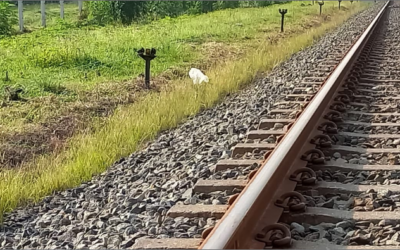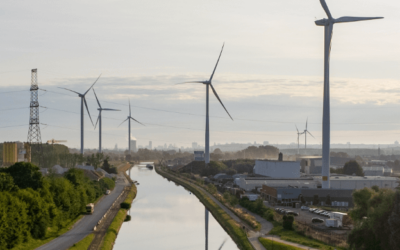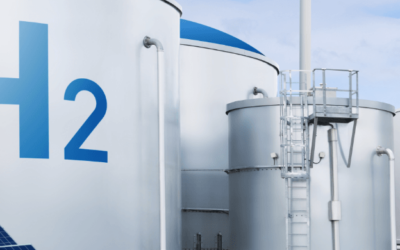Now that we are generating more and more solar and wind energy, the limitations of our power grid are becoming increasingly obvious. Smart energy hubs offer a solution. These hubs are considered ‘smart’ because they are able to make independent decisions about matters such as whether to use energy locally, store it or pass it on to the grid. The EIGEN project focuses on the development and implementation of this sustainable solution.
Towards a smarter use of our electricity systems
These days, our power grid is reaching full capacity more often. While large-scale generation of solar and wind energy is vitally important for the energy transition, we are running into problems with respect to the limited grid capacity. Expanding the grid is one solution, but it’s not enough. We will also have to make smarter use of our electricity systems. The EIGEN project is focused on developing one such smart solution in the form of local energy hubs especially for business parks that generate renewable energy. This is based on the idea of linking electricity supply and demand locally, thus making a positive contribution to the quality of the entire energy system. The EIGEN consortium, which consists of thirteen partners from the energy knowledge sector, commenced this project in early 2022. EGEN took care of obtaining a MOOI grant for the consortium.
Accounting for fluctuations in supply and demand
EIGEN, which stands for Energy hubs voor Inpassing van Grootschalige hernieuwbare ENergie (Energy hubs for the Incorporation of Large-scale Renewable Energy), involves the phase-by-phase development and testing of a standard approach for implementing energy hubs in business parks. This kind of hub would be a smart solution for green energy (solar and/or wind) generated in the business park, enabling it to be either used locally, stored locally, or delivered to the central power grid. The smart energy hub would continually determine the best option for any particular moment, taking into account fluctuations in demand (companies in the business park do not always need the same amount of electricity) and supply (there is not always the same amount of sun and/or wind available to generate energy). The available grid capacity would also be included in this ‘consideration’.
For both businesses and homes
The EIGEN project will also be examining the sustainable application of the energy hubs, given that the solution must be attractive enough to encourage companies in the relevant business park to participate. When it comes down to it, local consumption does not necessarily have to relate just to the companies. It is also possible to consider connecting an adjacent residential area so that local households can also benefit from the green energy generated in the business park.
Large-scale implementation plan
The EIGEN project commenced early in 2022 and will continue for just under four years, until 2025. The intended result is a standard, step-by-step plan (or ‘blueprint’) for the large-scale implementation of energy hubs in business parks. The beauty of this type of blueprint is that it provides a generic approach that suits a variety of business park types and is suitable for other local applications, such as smart cities and local energy communities.
Project consortium benefits from broad expertise
The EIGEN project consortium consists of thirteen partners who complement each other well in all respects. In addition to project ‘leader’ Alliander, they include: Sunrock Development, Ventolines, Recoy, SemperPower, PARKnCHARGE OpCo, Stichting ElaadNL, Over Morgen, Connectr, University of Twente, TNO, Stichting Saxion and Shared Energy Platform. The consortium therefore boasts ample expertise in smart energy solutions, spanning the relevant technology, organisation, legislation and regulation, and financing matters.
And how did EGEN support EIGEN?
Thanks to EGEN’s efforts, the EIGEN project will be co-funded by the MOOI scheme Systeemoplossingen inpassing grootschalige opwekking hernieuwbare elektriciteit (MOOI SIGOHE, System Solutions for the integration of large-scale renewable electricity generation). However, EGEN did far more than just arrange the grant. Assisted by ffiqs, another part of the PNO Group, EGEN’s consultants enthusiastically threw themselves into developing the project idea into a fully-fledged project, putting together a sophisticated consortium, identifying stakeholders’ interests and drawing up a budget. Now that the MOOI grant has been provided, the consortium can continue to develop the EIGEN project – a new step towards the optimal integration of large-scale green energy into the electricity grid, and therefore towards effectively reducing CO2 emissions in the Netherlands.


